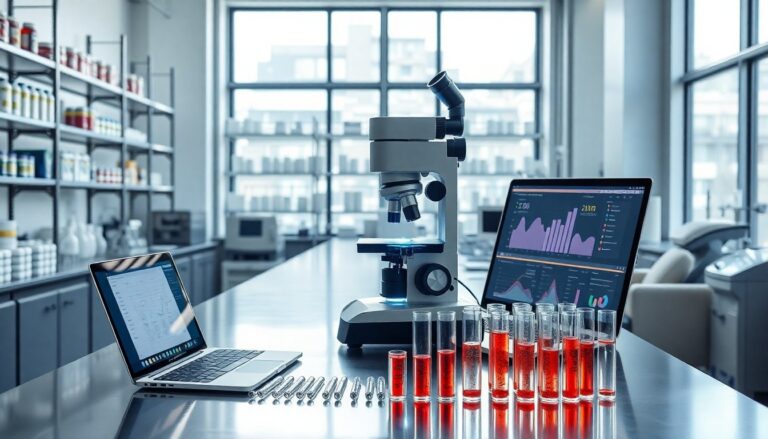Argomenti trattati
The evolving role of biotechnology in healthcare
The landscape of healthcare is experiencing significant change, primarily due to advancements in biotechnology. This dynamic field integrates various scientific disciplines to harness cellular and biomolecular processes. These innovations aim to address complex healthcare challenges effectively. As we progress deeper into the 21st century, the influence of biotech on healthcare is expected to grow, enhancing patient outcomes and fostering more efficient healthcare systems.
The promise of personalized medicine
One of the most promising developments in biotechnology is the field of personalized medicine. This innovative approach customizes medical treatment based on the individual characteristics of each patient, with a key focus on their genetic makeup. By utilizing genomic sequencing and sophisticated data analytics, healthcare providers can now administer therapies that specifically target the unique genetic profiles of patients.
Genomic medicine and its implications
Genomic medicine not only enhances treatment effectiveness but also minimizes the risk of adverse drug reactions. For example, specific cancer therapies can now be tailored based on the genetic mutations found in a patient’s tumor. This transition from a one-size-fits-all approach to a personalized treatment plan marks a significant advancement in oncology and other medical fields, potentially leading to improved success rates in treatments.
Innovations in drug development
Another crucial area where biotechnology is making an impact is in the drug development process. Traditional methods of drug discovery can be lengthy and expensive, often requiring over a decade and billions of dollars to bring a new medication to market. However, biotechnology companies are increasingly employing techniques such as CRISPR gene editing and biopharmaceuticals to streamline this process.
The role of CRISPR technology
CRISPR technology enables scientists to edit genes with remarkable accuracy, creating opportunities for the treatment of genetic disorders and various diseases. For instance, therapies developed through CRISPR may correct genetic defects at their origin, providing hope for conditions once considered untreatable. This technology not only improves the efficiency of drug development but also facilitates innovative treatments that address the root causes of diseases.
Enhanced diagnostic tools and therapies
Biotechnology is transforming the diagnosis and monitoring of diseases. The emergence of biomarkers and sophisticated diagnostic tools allows for the early detection of diseases, which is essential for effective treatment. An example is liquid biopsies, which analyze circulating tumor DNA in the bloodstream, offering non-invasive options to identify cancer at its earliest stages.
The future of diagnostics
The integration of artificial intelligence with biotechnology is revolutionizing the field of diagnostics. AI algorithms can process vast amounts of health data, identifying patterns that may be missed by human analysis. This collaboration enhances diagnostic accuracy and aids clinicians in making well-informed decisions regarding patient care.
Challenges and ethical considerations
Despite the significant potential of biotechnology in healthcare, addressing the challenges and ethical implications is crucial. Issues such as genetic privacy, equitable access to therapies, and the consequences of genetic modifications require careful consideration. As the field of biotechnology advances, stakeholders must engage in open discussions to establish regulations and guidelines that protect patients while fostering innovation.
Furthermore, the accessibility of biotechnological advancements is crucial. Ensuring that patients worldwide can benefit from these innovations requires collaboration between governments, healthcare providers, and biotech firms.
The future redefined by biotechnology
The impact of biotechnology on healthcare is set to be transformative. Innovations such as personalized medicine, advanced drug development, and enhanced diagnostics are just the beginning. As the role of biotech in healthcare expands, it is essential to create an environment that encourages innovation while protecting patient rights and ensuring access to care. The journey ahead holds significant promise, with biotechnology poised to play a vital role in shaping the future of healthcare.

